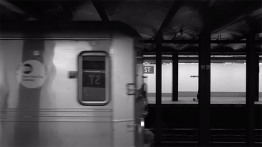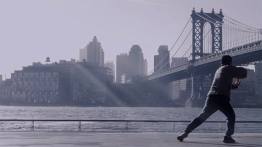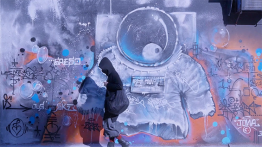Master of Architecture II Fall 2019
GRADUATE DESIGN RESEARCH STUDIO I
Professor Diana Agrest
Architecture as a Transdiscursive Field: Film
Filmic Readings of the City
This Studio explores modes of articulation between architecture and other discourses, focusing specifically on film in relation to the city and urban discourse. Film is here a medium of potency in a transformative creative production resulting through Filmic Readings of the City resulting in nine students' individual films.
Film itself transcends the exclusivity of the visual, incorporating time, movement, speed, sound, text, narrative, and other dimensions, important in the understanding of different forms and forces at work in the city. Reading the city through film allows access into its multilayered formal and cultural complexity, its expansive forces and the richness of the sequential organization of its fragments in space, time and movement, expanding in this way the understanding of urban discourse.
In the Studio, students, who had no training at all in film or film making, after some short preparatory film exercises, produced individual films following the overall given theme of the Body in relation to an urban setting, in Manhattan. Each one of the nine films is as well a chapter of a studio collective film New York Revelations (see below).









